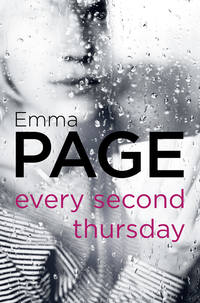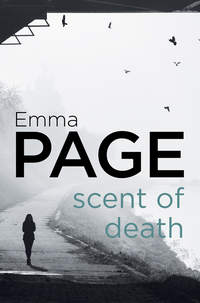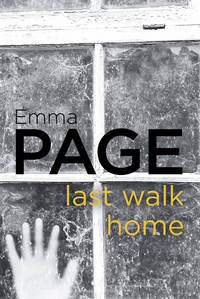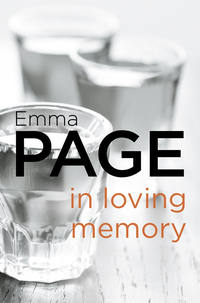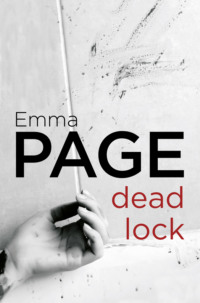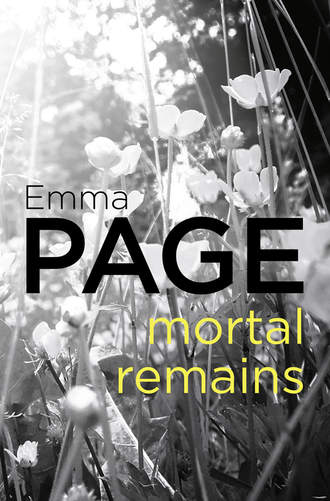
Полная версия
Mortal Remains
He seemed not to hear. He craned forward, staring down into the shrubbery. She called up to him again, loudly and forcefully. He made no reply but suddenly began to descend the tree, scrambling swiftly down, dropping to the ground at her feet. He scarcely glanced at her but darted off at once towards the shrubbery. She set her jaw and went after him.
He came to a halt, stooped and peered under the drooping branches. Her gaze travelled after his, to a heap of bracken fronds. She uttered a gasping cry. A pair of legs was sticking out from the bracken, legs clad in dark trousers, the feet shod in black trainers. Her heart lurched in her chest, and she reached out to steady herself against a tree.
The lad swept aside the bracken, revealing the rest of the body, face down in the undergrowth, clad in a grey quilted jacket, a woollen cap striped in brown and white, darkly stained with blood.
CHAPTER 4
Mrs Griffin liked to dish up Sunday dinner promptly at one-thirty. At a quarter past twelve, Norman, who had spent the morning tinkering with his radios, washed and changed, ready for his usual pint of beer in the pub up the road.
The moment he walked in through the pub door he knew something was up, there was none of the customary laughter and badinage, only serious looks, hushed voices. ‘What’s going on?’ he asked one of the regulars.
‘Old Harry Lingard,’ the man told him. ‘They’ve found his body on Whitethorn Common.’
‘His body?’ Norman echoed with a look of stupefaction. ‘You don’t mean he’s dead?’
‘He’s dead all right,’ the man responded with energy. ‘Back of his head bashed in. The common’s crawling with police, they’ve got it all cordoned off.’ A thought struck him. ‘That girlfriend of yours, Harry’s granddaughter, isn’t she?’
‘Yes, she is. She’s not here just now, she’s over at her brother’s for the weekend. I’d better let the police know.’ He left the pub at once. To reach the common he had to pass his own house again. He went inside for a moment to tell his mother the grim news and where he was bound; he had no idea how long he’d be.
She was thunderstruck. ‘It’ll be one of those muggers,’ she declared with conviction as soon as she’d got her breath back. ‘I can’t believe it, I’ve known Harry all my life.’ She began to cry.
He put an arm round her shoulders. ‘I can’t stop,’ he told her. ‘I’ve got to get along to the common.’
Police in gumboots and overalls were carrying out a fingertip search; scattered knots of onlookers watched from a permitted distance. The police photographers had finished their work, the body had gone to the mortuary. Pressmen from the local papers were in evidence; the local radio station had put out a newsflash.
The police doctor had put the time of death, at a rough estimate, at between six o’clock and midnight on Friday evening. The back of the skull had been shattered with a blunt instrument; minor scratches and abrasions to the face would seem to have been caused by the body being dragged by the feet, face down, over the last yard or two before being dumped under the trees.
The body was fully clothed but there was nothing in any of the pockets, no personal possessions of any kind on the body. There was no sign of any weapon, nor any sign of the scarlet satchel of freesheets Harry must surely have been carrying.
When Norman reached the common Detective Chief Inspector Kelsey was talking to the coroner in the driveway of the property where the body had been discovered. The coroner, a local doctor of long experience, always made a point of viewing the body in the spot where it was found, if at all possible.
Norman spoke to a constable, saying he wished to speak to the officer in charge. He was directed to the driveway and stood waiting till the two men had finished their conversation. He saw the Chief Inspector register his presence. A big, solidly built man, Chief Inspector Kelsey, with massive shoulders. He had a head of thickly springing carroty hair, a freckled face dominated by a large, squashy nose.
At last the two men shook hands and the coroner went off to his car. Kelsey gave Norman an inquiring glance.
Norman introduced himself and explained about Jill and Gareth. Kelsey’s shrewd green eyes ranged over him as he talked. A constable had already been despatched to Harry Lingard’s house but had got no response there or at the adjoining semi. A neighbour further along had seen Harry leaving his house with his satchel of papers at around six-fifteen on Friday evening.
‘Jill’s not due back till Tuesday evening,’ Norman told the Chief.
‘We’ll get over there and break the news,’ the Chief said. But he had one or two matters to attend to first.
‘All right if I come along?’ Norman asked. ‘Jill will be very upset, I’d like to be with her.’
‘I don’t see why not.’ Kelsey consulted his watch. ‘You can get off home now. Meet us at Harry Lingard’s house at two-thirty sharp, you can ride with us.’
Five minutes before the appointed time Norman reached the house and stationed himself by the police car. Chief Inspector Kelsey, accompanied by Detective Sergeant Lambert, was talking to the constable on guard. In the absence of any keys to the house the Chief had felt no necessity to force an entry; it was possible one of the two grandchildren might have a key. He had contented himself for the present with an external tour of the property.
Every door and window in the house had been carefully secured, the curtains were all closed; nowhere any sign of disturbance. Through the porch window the Chief could see copies of the Bazaar stacked in bundles on the bench.
The garage was locked, windows fastened; a small van was visible inside. The garden shed was not locked, though its windows were closed.
At two-thirty Kelsey strode out to the car. Norman was to ride in front beside the sergeant. The Chief took his seat in the rear where he immediately leaned back and closed his eyes, uttering not one syllable during the journey. It took three-quarters of an hour to reach Gareth Lingard’s cottage which stood on the outskirts of a town; it had a sizeable piece of land attached.
An estate car was drawn up near the open front door when the police vehicle pulled up. A boy about four years old, wearing outdoor clothes, was jumping on and off the doorstep, counting his jumps in a clear treble. As Sergeant Lambert put his hand on the gate Gareth and his wife came out of the house, deep in conversation. Anne was leading a toddler by the hand; they were all dressed in outdoor clothes. They made to turn towards the estate car and caught sight of the trio at the gate. They halted; Gareth looked over at them with inquiry. He spotted Norman, his face took on a look of puzzlement.
The three men walked up the path. As the Chief was introducing himself Jill Lingard came out of the house to join the others. She gave a little cry of surprise at the sight of Norman. In the same moment her ears caught what the Chief was saying. Norman locked eyes with her but he said nothing, he made no move in her direction.
‘I’m afraid we bring bad news,’ Kelsey said gently, now including Jill in his gaze. ‘Very bad news. I think it’s best if we all go inside.’
‘Yes, of course.’ Gareth led the way into the sitting room where Norman took up his position at Jill’s side.
‘It’s about your grandfather, Mr Harold Lingard,’
Kelsey began. Jill gave a gasp and put a hand up to her face. Norman slid an arm around her shoulders.
‘I’m very sorry to have to tell you he’s dead,’ Kelsey went on. Jill lowered her head and began to cry.
‘Dead?’ Gareth echoed in shocked astonishment. ‘Has there been an accident?’
The Chief shook his head. He began to explain the circumstances in which Harry had been found. His bleak recital was punctuated by Jill’s sobs, questions from Gareth. Anne sat in silence, her face full of concern and sympathy; the two children stared at the visitors.
Anne appeared to be a sensible and practical young woman. She produced a tray of tea and then busied herself packing Jill’s suitcase. On the journey back to Cannonbridge Norman and Jill travelled with Gareth behind the police vehicle; their first stop was at the hospital mortuary. Gareth went inside with the two policemen to make the formal identification. When they came out again he looked white and shaken; he said nothing as he got back into the car. Norman offered to drive and Gareth made no resistance; Norman followed the police car to the council estate.
Gareth had no keys to his grandfather’s house; neither he nor Jill had ever had any. But Jill knew of a key to the back door, kept in the garden shed. ‘Granddad put it there for me,’ she explained in unsteady tones, ‘in case I ever needed it. I hardly ever used it.’
They went along to the shed and Jill indicated a pair of secateurs lying on a corner shelf. The Chief took a pen from his pocket and with the tip raised the end of the secateurs, revealing the key; he left it where it was. Both key and secateurs were of old, dull metal, far from smooth. Neither could be touched before being tested, although there was little hope of useful prints.
With Gareth’s permission they broke a pane in the kitchen window to gain entry. Inside, all was scrupulously neat and tidy, the whole house spotlessly clean. Harry’s private papers were kept in a bureau in the sitting room but the bureau was locked. Gareth was able to supply the name of his grandfather’s bank and the solicitor who had drawn up his will two years ago.
At the Chief’s request Gareth and Jill set about compiling a list of what their grandfather might be expected to have on him. Watch, ring, regimental badge. Pigskin wallet – a present from Jill last Christmas. Zipped coin purse, oldish, of brown leather. Notebook, ballpoint pen, van keys, house keys – including the key to the bureau. A white handkerchief.
When the list was as complete as they could make it, Jill looked up at the Chief, her eyes bright with tears. ‘Is that what Granddad’s life was valued at?’ she demanded fiercely. ‘Is that what some thug thought it worth killing him for?’
CHAPTER 5
The Chief was at the police station early on Monday morning to assess the first results of the house-to-house inquiries before going along to the General Hospital where the postmortem on Harry Lingard was shortly due to begin.
As always with a case of this nature there was no shortage of reports, once the news of the crime had been made public, of unsavoury-looking characters having recently been seen in the area. Vehicles, too; the public could always be relied on to recall strange vehicles parked in out-of-the-way spots, appearing abruptly, vanishing equally suddenly. None of these reports struck the Chief’s practised eye as having any real significance, though all must be scrupulously followed up, however much valuable time and effort was wasted in the process.
One report did briefly arrest the Chief’s attention, that of a householder, a young single mother living in a street off Whitethorn Road. She had got up during Friday night to attend to her crying infant. After she put the baby back in its cot she went down to the kitchen to make herself a hot drink. On her way downstairs she heard screeching sounds from the direction of the common, sufficiently loud and sudden to halt her on the stairs. She stood listening for a minute or so but there were no more screeches. Some freak of the wind, she told herself; it was certainly blowing strongly at the time, with fierce intermittent gusts. Or a fox, perhaps; they were not unknown at night around the common, they were capable of the most eerie, heart-stopping cries. She was able to give the time she had heard the sounds. When she entered the kitchen she had glanced up at the clock, a reliable timekeeper; it had shown twenty minutes past two.
It was when his eye fell upon this statement of the time that the Chief lost interest in the report. However variable the way in which Harry set about his round from one week to the next, it was scarcely conceivable that he could have been crossing the common at twenty past two in the morning. No other householder, the Chief noted, had reported hearing these screeching cries – but then, maybe, none of them had a two-month-old baby to get them out of bed at that time of night.
So far they hadn’t come up with anyone who had actually spotted Harry putting a copy of the Bazaar through a letterbox that evening, nor had they discovered any householder on Harry’s round who could tell them at what precise moment his own copy had dropped on to the mat.
The search of the common was not yet completed. It had yielded a variety of items; none appeared to have any connection with the murder. Nothing approximating to the blunt instrument they were seeking had so far turned up.
In one of the drawers of Harry’s bureau, which had now been opened by a locksmith, they had found Harry’s chequebook and bank card but they had come across nothing that seemed to offer any clue to the crime.
Shortly after eleven the pathologist came out of the mortuary with Chief Inspector Kelsey; they stood talking in the corridor.
Harry Lingard had been in exceptionally good physical condition for his age, he could well have been expected to live an active life into his late eighties.
Four savage blows had been dealt to the back of his head. The blows appeared to have been struck by a right-handed person, with both assailant and victim in an upright position; whether one or both were in motion at the time it was not possible to say. There had been little bleeding; the second blow had in all probability killed him. The assault had not required exceptional strength; it was not, for instance, beyond the power of a fit, strong female.
It wasn’t possible to be more specific about the kind of blunt instrument used; some kind of heavy tool seemed most likely. Nor was it possible to fix the time of death with any certainty; the pathologist put it on Friday evening, between seven and midnight.
Gareth Lingard was not in a position to spend more time away from his business than was absolutely essential. He drove over to Cannonbridge in his lunch-hour to look in at the police station, learn the results of the post-mortem.
In the afternoon the Chief called in at Mansell’s yard. Mansell was expecting them; Sergeant Lambert had phoned in the morning to make an appointment. The moment the police car drove in Mansell came out of the office with Stuart at his side. The Chief had some slight acquaintance with Mansell but he had never met Stuart. His father all over again, the Chief thought as the pair crossed the yard towards him.
‘An appalling business,’ Mansell said as they shook hands; he took them into the inner office. The Chief asked routine questions about the dead man and Mansell answered readily. Lingard had been an excellent worker, willing and obliging, unfailingly punctual, very honest. He had been well liked, had never been in any kind of trouble. Mansell knew of no personal or other difficulties. He seemed to take it for granted that Lingard had been the victim of a mugging.
His manner throughout was helpful and friendly, but from time to time the Chief received a fleeting impression of wariness and tension. Stuart was at no point called upon to speak nor did he volunteer any observation; he held himself alertly interested throughout.
The conversation didn’t take long. As they were about to leave, Lester Holroyd drove into the yard; he walked across to the office, encountering the policemen in the doorway. There was a further brief exchange but Lester could add nothing to what Mansell had told them.
Later in the day the local evening paper came out with a four-page spread on the crime. Photographs of police activities, interviews with residents of the council estate, recounting Harry’s many endeavours on their behalf. Tributes from fellow members of the British Legion.
Mention was made of the fact that it was Harry’s evidence which had been largely responsible on three separate occasions over the past few years for the arrest and sentencing of local youths on charges of vandalism and thefts from cars. What the paper didn’t mention was that Harry had reported yet another such case, lads breaking into cars, only a matter of weeks back; he would have been giving evidence when the case came up. The lads concerned were at present out on bail.
A sizeable section of local opinion laid the murder firmly at the door of some one or more of these tearaway youths, either bent on revenge or maybe disturbed in the course of committing some further misdemeanour. Possibly, such opinion had it, there had been no serious intention of actually killing the old man, the wish had more probably been merely to rough him up, teach him a lesson. Easy enough, in the event, for someone to strike too hard, astonishing himself – and any mates – by the violence of the aggression sweeping over him.
But more general opinion in the local pubs inclined towards a run-of-the-mill mugging that had got out of hand, the victim being selected for ease in carrying out the robbery, with total indifference as to who that victim might be, the perpetrators more than likely not from the locality at all.
It was on this last point that opinion most sharply divided, some firmly rejecting the possibility that local lads could be involved in such a brutal crime, others maintaining with equal vehemence that the choice of dumping-ground – a private garden with the owners absent – must surely argue a degree of local knowledge.
Both groups were united in believing more than one assailant must have been involved, probably with a vehicle of some sort nearby. How else account for the spiriting away of the satchel and freesheets? A lone attacker on foot, argued the know-alls, would scarcely set about lugging the body single-handed off the common and into the garden, and then attempt to make off under the street lights, weighed down with a heavy satchel, brilliantly coloured, specifically designed to be noticed.
Tuesday morning brought a conference and press briefing. At noon the Chief had an appointment with Harry Lingard’s solicitor.
Harry’s will was a straightforward document. After a number of bequests to charities he had actively supported, his estate was split down the middle between his two grandchildren. Apart from the house, Harry had owned stocks and shares, various other investments. ‘A lot of folk are going to be surprised at the amount he leaves,’ the solicitor said. ‘He saved all his life, he was a shrewd investor.’ Harry’s wife had been the only child of a shopkeeper, she had inherited a substantial sum in her middle years; no mortgage had been needed when Harry came to buy his council house.
Gareth had been appointed joint executor with the solicitor. Both grandchildren knew the contents of the will; Harry had talked it over with them before the will was drawn up. To the best of the solicitor’s knowledge Harry had always been on excellent terms with both grandchildren. As far as he knew, neither was in any financial difficulty.
The Chief pondered these points as he left the solicitor’s office. Jill had reached Gareth’s house around six-thirty on Friday evening. Anne was there with the children, Gareth came in from work shortly afterwards. They had spent the evening together in the house. Gareth’s partner and his wife had come in for an hour or two after supper, arriving at about eight and leaving around ten-thirty. By eleven everyone had retired for the night.
Before returning to the station Kelsey called in at the bank and building society where Harry had held accounts. Both accounts showed substantial balances; there had been no unusual movement recently in either.
The afternoon saw an energetic round-up of every youth in the area who might be thought to have harboured a grudge against Harry Lingard. Clubs, discos and similar meeting-places were visited during the evening. Interviews took place in the police station, in the offices of clubs, in lads’ homes, in the presence of parents where possible.
The effect of all this activity was to arouse a good deal of apprehension in a section of local society more usually remarkable for its carefree attitude to law and order. Petty crime might be an everyday staple but suspicion of murder was another kettle of fish altogether, one that had many of these characters quaking in their designer trainers.
Alibis for Friday evening were produced in the end for everyone – in some cases only after considerable red-faced shuffling about, understandable enough when it emerged that one pair had spent the evening rampaging over half the county in a succession of stolen cars; a second pair had improved the shining hours by nicking cigarettes and cash from a tobacconist’s in another town; a third had amused themselves by breaking into an isolated dwelling some miles from Cannonbridge while the owners were out for the evening.
The youths currently on bail, against whom Harry would have given evidence, had operated as a gang of six, all living in the same area of Cannonbridge, a district with an unsavoury reputation, where the mere sight of a police car drawing up was normally enough to afflict every resident with dumbness, deafness, blindness and acute loss of memory.
Today, however, these afflictions were a good deal less severe and widespread. The fathers of some of the gang, themselves with records of one sort and another, were usually happy to turn a blind eye to whatever their sons got up to, no more in their indulgent eyes than might be expected from any lad of spirit. But on this occasion more than one of these citizens offered to beat the truth out of their offspring, given ten minutes without interference from the law.
It wasn’t necessary to accept any of these obliging offers as the lads were able to account satisfactorily for the manner in which they had spent Friday evening. It appeared they had occupied themselves harmlessly for once. Two of the gang had taken part in a pub darts match at the other side of Cannonbridge, the rest had gone along to cheer them on. All six had remained in the pub till closing time and had then gone on with members of both teams to the nearby home of one of the captains where the team wives set about making coffee and sandwiches. There had been a party of sorts which broke up around one-thirty.
The inquest on Harold William Lingard took place at eleven on Wednesday morning. The proceedings were brief and formal, the inquest being adjourned with no date set for resumption; the body was released for burial. Few members of the public were present. Old hands knew initial proceedings were scarcely ever of much interest; it was resumed inquests that usually offered a better chance of eye-opening disclosures.
Among the few who did take their seats the Chief noticed a handsome, dark-haired young woman with a strong, passionate face. She came alone, sat alone, spoke to no one. She looked about with keen interest, listened intently, left the moment the proceedings ended. The Chief was certain he knew her face and after a minute or two it came to him that he had seen her once or twice with her father at functions in the town. She was Tom Mansell’s daughter, Diane Holroyd, married to Lester Holroyd, Mansell’s right-hand man.
When the Chief left the court house he found Gareth and Jill Lingard waiting for him at the foot of the steps. ‘Something I remembered when I woke up this morning,’ Gareth told him. Two or three years ago his grandfather had told him he kept a certain amount of ready cash in the house for his bits of dealing. ‘He showed me where he kept it,’ Gareth added. ‘In a secret drawer of an old chest in his bedroom. He wanted me to know in case anything happened to him.’ Gareth couldn’t remember if Harry had mentioned a specific figure but his impression was that the sum might have been a few hundred pounds. ‘I’ve no idea if he still kept money there,’ he said, ‘or how much it might be now. He never mentioned it again.’
‘We’ll get along there and take a look in the chest,’ the Chief decided. Over his radio he arranged for a fingerprint officer to meet them at the house.


